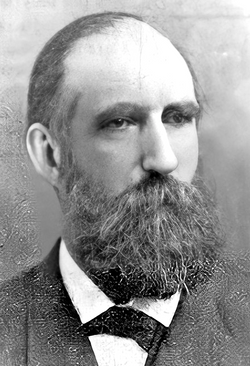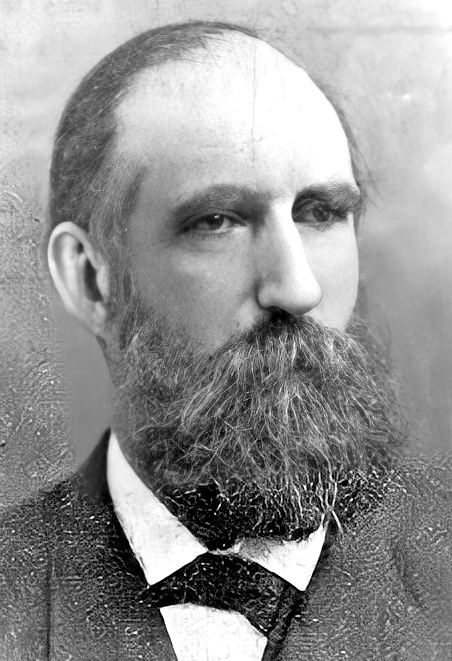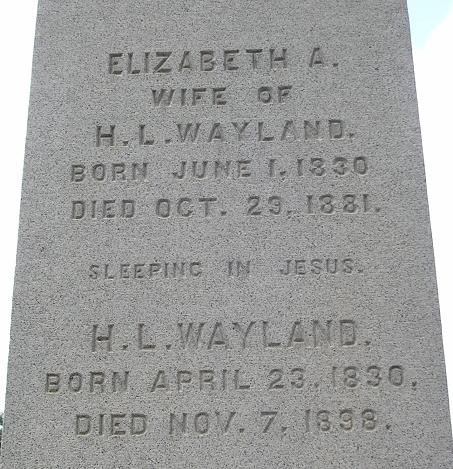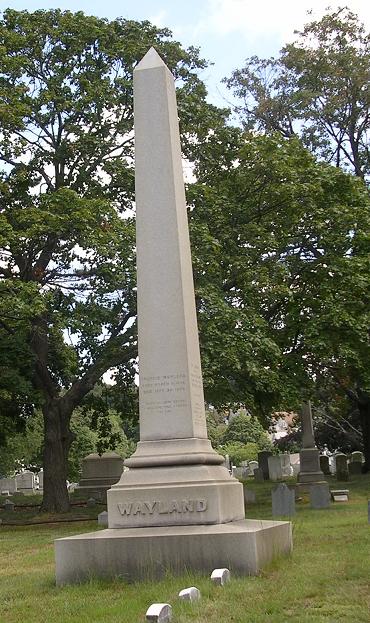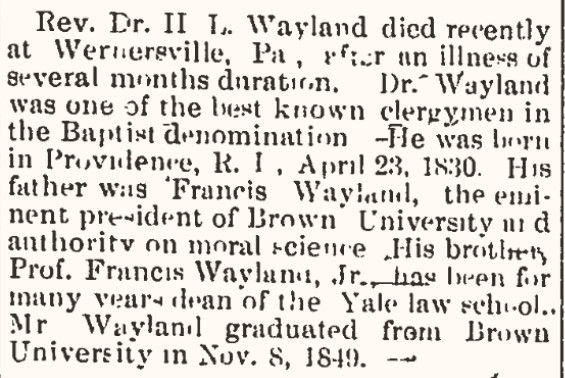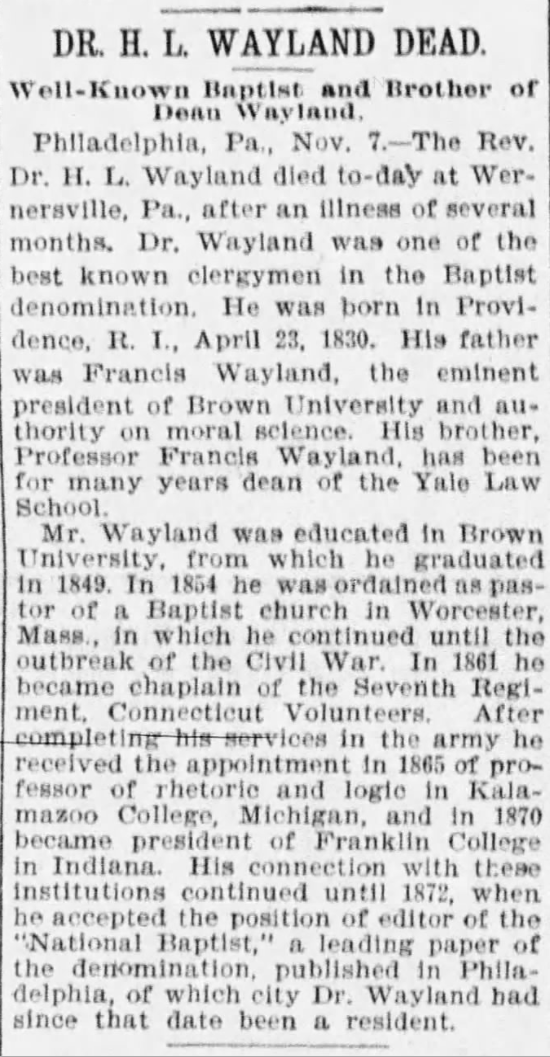There was no indication that Military pension was applied for.
Rev. Heman Lincoln Wayland, D. D., died November 7th. He was born in Providence, R.I., April 23d, 1830. His father was Francis Wayland, the eminent President of Brown University, whose high standing as an authority on Moral Science made him particularly recognized as one of the leading educators of the United States. His brother, Professor Francis Wayland, Jr., has been for many years dean of the Yale Law School.
Dr. Wayland was educated in Brown University, from which he graduated in 1849. In 1854 he was ordained as pastor of a Baptist Church in Worcester, Mass., in which he continued until the outbreak of the Civil War. In 1861 he became chaplain of the Seventh Regiment Connecticut Volunteers, and in pursuance of his duty, was, present in several battles of the war, and after the battle of James Island, in 1862, received honorable mention in the official report of the brigade commander.
After the completion of his services in the army, he received the appointment, in 1865, of professor of rhetoric and logic in Kalamazoo College, Michigan, and in 1870 became president of Franklin College, Indiana. His connections with these collegiate institutions continued until 1872, when he accepted the position of editor of the National Baptist, which he conducted till 1894. Since then he had been the Philadelphia editor of the Baptist Examiner.
In addition to his editorial work, Dr. Wayland contributed largely to newspapers, East and West, especially upon educational and sociological topics, and he prepared and read papers before the American Social Science Association upon "The Progressive Spelling," "The Unnamed Third Party," "The State and the Savings of the People," "Social Science in the Law of Moses," "The State and the Saloon," "The Dead Hand," "Laissez-faire Run Mad," "Has the State Abdicated?" and "Compulsory Arbitration."
In authorship he produced "The Life of Charles H. Spurgeon," and, in conjunction with his brother Francis, the "Life of Francis Wayland." He belonged to numerous religious and social associations, and acted as president of many religious and denominational organizations, and also of the American Social Science Association, the Contemporary Club of Philadelphia, and the Christian Temperance Alliance of Eastern Pennsylvania. He joined the New England Society in 1882, became its second president in 1884, and was made honorary life member in 1889. He addressed also the New England Societies of New York, Brooklyn, Indianapolis, and St. Louis, and delivered numerous addresses to other organizations on a great variety of topics. (from the booklet Eighteenth Annual Festival of the New England Society of Pennsylvania, at Hotel Walton, Philadelphia, December 22, 1898)
There was no indication that Military pension was applied for.
Rev. Heman Lincoln Wayland, D. D., died November 7th. He was born in Providence, R.I., April 23d, 1830. His father was Francis Wayland, the eminent President of Brown University, whose high standing as an authority on Moral Science made him particularly recognized as one of the leading educators of the United States. His brother, Professor Francis Wayland, Jr., has been for many years dean of the Yale Law School.
Dr. Wayland was educated in Brown University, from which he graduated in 1849. In 1854 he was ordained as pastor of a Baptist Church in Worcester, Mass., in which he continued until the outbreak of the Civil War. In 1861 he became chaplain of the Seventh Regiment Connecticut Volunteers, and in pursuance of his duty, was, present in several battles of the war, and after the battle of James Island, in 1862, received honorable mention in the official report of the brigade commander.
After the completion of his services in the army, he received the appointment, in 1865, of professor of rhetoric and logic in Kalamazoo College, Michigan, and in 1870 became president of Franklin College, Indiana. His connections with these collegiate institutions continued until 1872, when he accepted the position of editor of the National Baptist, which he conducted till 1894. Since then he had been the Philadelphia editor of the Baptist Examiner.
In addition to his editorial work, Dr. Wayland contributed largely to newspapers, East and West, especially upon educational and sociological topics, and he prepared and read papers before the American Social Science Association upon "The Progressive Spelling," "The Unnamed Third Party," "The State and the Savings of the People," "Social Science in the Law of Moses," "The State and the Saloon," "The Dead Hand," "Laissez-faire Run Mad," "Has the State Abdicated?" and "Compulsory Arbitration."
In authorship he produced "The Life of Charles H. Spurgeon," and, in conjunction with his brother Francis, the "Life of Francis Wayland." He belonged to numerous religious and social associations, and acted as president of many religious and denominational organizations, and also of the American Social Science Association, the Contemporary Club of Philadelphia, and the Christian Temperance Alliance of Eastern Pennsylvania. He joined the New England Society in 1882, became its second president in 1884, and was made honorary life member in 1889. He addressed also the New England Societies of New York, Brooklyn, Indianapolis, and St. Louis, and delivered numerous addresses to other organizations on a great variety of topics. (from the booklet Eighteenth Annual Festival of the New England Society of Pennsylvania, at Hotel Walton, Philadelphia, December 22, 1898)
Family Members
Advertisement
Explore more
Sponsored by Ancestry
Advertisement
